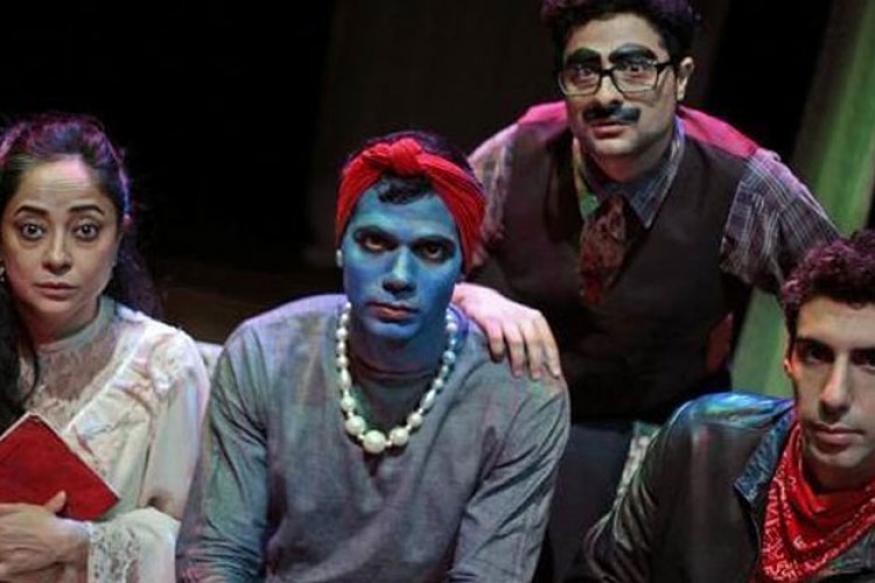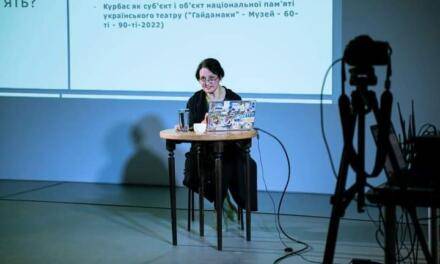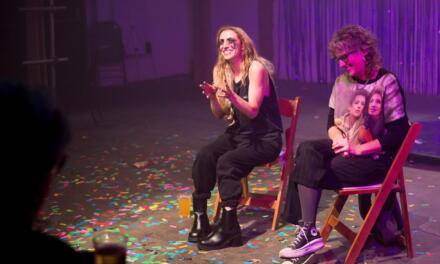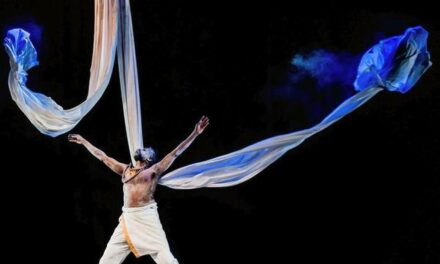The seventh edition of Centrestage, the NCPA’s festival of premiering work, will showcase 15 plays in four languages over ten days
It is always tempting to look for storylines or patterns that emerge in a festival’s programme as soon as it is announced. Whether an essential theme reveals itself, what the curatorial blueprint may have been, or indeed, the lineup of faces, both wanted and unfamiliar, that provides a sense of unity to the itinerary. The NCPA’s Centrestage Festival, with 15 plays over ten days, is a mixed bag of offerings. Stalwarts rub shoulders with rookies, temperaments vary from group to group, but within the dissonance, one can detect the linkages that make Mumbai theatre such a tantalizing potpourri of sensibilities.
Taking us to the very heart of Bundelkhand will be actor Sushmita Mukherjee with Naribai, a piece she has authored herself. The eponymous character is a woman from the Bedhni community, a tribe in which a strand of prostitution continues to this day. Naribai’s encounters with women from the city (including an alter-ego for Mukherjee herself) leads to the clashes and collisions the actor seeks to dramatize. A National School Drama (NSD) graduate, she has occasionally dabbled in theatre with the Workshop Theatre and Ekjute, and is best known for her quirkily comedic parts in mainstream cinema that do little justice to her talent. Naribai evokes memories of her phenomenal work in Sudhanshu Mishra’s 1985 television adaptation of Rangeya Raghava’s Kab Tak Pukaroon. Set in a similar milieu, she played a feisty gypsy woman unapologetic about her sexuality, opposite Pankaj Kapur, an actor with whom she is indelibly associated thanks to their iconic pairing as Karamchand and Kitty in the 1980s era TV whodunit Karamchand. For nostalgia-junkies, Kapur is also slated to present an evening of performances, DreamZ-Sehar, at the festival. It is a fortuitous piece of programming, even if the two consummate actors do not actually share the same stage.
Also returning to her theatre roots is the NSD-trained Tannishtha Chatterjee, an actor with one of the most enviable résumés in the indie circuit. Remarkably comfortable in her own skin, Chatterjee radiates a serene incandescence in films like Brick Lane and Island City that have bookended her career, even if she eschews Bollywood’s oppressive beauty norms. It will be interesting to see what she makes of her part in a play set wholly in a beauty parlor and intriguingly titled Facial, Pedicures and Mind Masala. Her co-star is theatre regular Divya Jagdale, who has written the piece. The two women — one, a housewife and the other, single — spar and bond over umpteen spa appointments, and while they do discuss men and relationships, it is very likely that over the play’s running time, they would also pass the Bechdel Test with flying colours.
Also in the lineup is Isheeta Ganguly, who had earlier inflicted Tagore’s women with a Sex and the City vibe in her play Three Women. At this festival, she offers Shakuntala Awaits in English, in which the star-crossed Shakuntala and Dushyant (played by international actors Purva Bedi and Samrat Chakrabarti) have to settle their romantic scores not in satyug-era Hastinapur, but in latter-day Cambridge.
In a holdover from last year’s festival, director Gurleen Judge teams up with actors Neha Singh and Bhumika Dube. They draw from a Rajasthani folktale by Vijaydan Detha to create their devised piece Dohri Zindagi, which was previewed at Bengaluru’s Gender Bender festival in September this year. Two unborn girls betrothed to one another in the womb, must deal with the double-edged complexities of gender as they grow up. Here, the illustrative art form, kaawad bachana, usually the domain of men, has been harnessed to recount a feminist tale.
A slew of plays offers contemporary takes on relationships. In Meherzad Patel’s The Relationship Agreement, a virtual contract is drawn up by lovers entering into a conscious coupling. In Yugandhar Deshpande’s Absolute, directed by Mandar Deshpande (the only Marathi play at the festival), the husband and wife at the center of the tale grapple with existential concerns. Prayag Dave’s Gujarati offering Do Deewane Shaher Main deals with the love foibles of a millennial pair. And upending notions of talaq is Imran Rasheed’s Phir Se Shaadi, which, given the antecedents of the Rangbaaz group, is bound to be a riotous affair.
Escaping any kind of categorisation are plays from Centrestage regulars like Akvarious Productions who, after last week’s carnival offering at Prithvi Theatre, present yet another take on the city’s burgeoning open-mic culture. Stand-Up deals with the cut-throat business of comedy. Elsewhere, Eugene O’Neill’s Long Day’s Journey into Night is given an Indian makeover by Mohammad Zeeshan Ayyub and Rasika Agashe, a team that has been particularly prolific in the theatre this year. And, for the third year running, the Patchworks Ensemble open a new play at Centrestage, called It’s About Time,whose contents have been kept under wraps, because it would be untimely to reveal too much too soon.
The NCPA Centrestage Festival runs from November 25 to December 4. For schedule, click here.
This article was originally published on The Hindu.com. Reposted with permission. Read the original article.
This post was written by the author in their personal capacity.The opinions expressed in this article are the author’s own and do not reflect the view of The Theatre Times, their staff or collaborators.
This post was written by Vikram Phukan.
The views expressed here belong to the author and do not necessarily reflect our views and opinions.


















